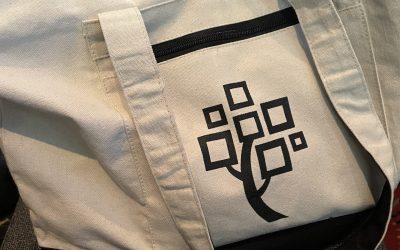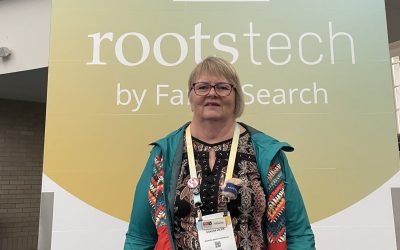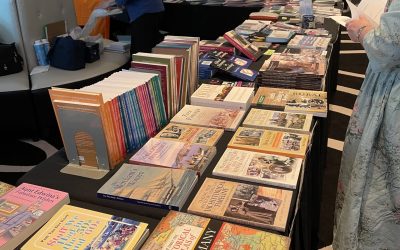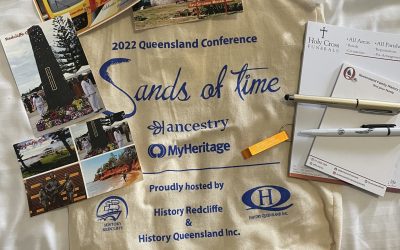Pauleen from the Family history across the seas blog has created a Geneameme Beyond the Internet which focuses on genealogy resources beyond the Internet. Geneamemes (named by Geniaus) seem to be quite the trend lately so not to be left out, here is my contribution to this new geneameme.
For background I started researching my family history in 1977 so most of it was done pre Internet days. I have been able to solve some of my brick walls using the Internet and online databases especially census records. Also working in libraries and archives probably gave me an advantage as I was able to spend lunch times researching and found records I would never have found otherwise! It takes time to search original records which may only be indexed on a yearly basis or may not even be indexed at all. Looking at my results here, it is quite clear that I am more at home with a pre Internet geneameme than I was with the Tech Savvy Genealogists Geneameme!
Things you have already done or found: bold face type
Things you would like to do or find: italicize (colour optional)
Things you haven’t done or found and don’t care to: plain type
You are encouraged to add extra comments in brackets after each item
- Looked at microfiche for BDM indexes which go beyond the online search dates. Also CDs.
- Talked to elderly relatives about your family history. Wished I’d done more when I still had the chance!
- Obtained old family photos from relatives. Otherwise I wouldn’t have any!
- Have at least one certificate (birth/death/marr) for each great-grandparent. Have all of them – they were only $5 when I started!
- Have at least one certificate (birth/death/marr) for each great-great-grandparent. Again most of them.
- Seen/held a baptism or marriage document in a church, church archive or microfilm.
- Seen your ancestor’s name in some other form of church record eg kirk session, communion rolls. Does my ancestor’s brothers count – recorded in minutes of church meetings and helped build the local church.
- Used any microfilm from an LDS family history centre for your research. Used to spend every Friday night at the library back in the late 1970s.
- Researched using a microfilm other than a parish register (LDS family history centre/other). Mostly UK and Scottish census films.
- Used cemetery burial records to learn more about your relative’s burial.
- Used funeral director’s registers to learn more about your relative’s burial.
- Visited all your great-grandparents’ grave sites. All but one who died in remote western Queensland but have contacted local historical society who will take me out there when I get the chance to visit – they have put a memorial on the graves as it is now an historic cemetery.
- Visited all your great-great-grandparents’ grave sites. Most of them but still one I can’t find dying anywhere!
- Recorded the details on your ancestors’ gravestones and photographed them. Wish more of them had gravestones – would like to put plaques up at some stage.
- Obtained a great-grandparent’s will/probate documents. Only a few had wills, some intestacy files too!
- Obtained a great-great grandparent’s will/probate documents – again wish there were more to be found but where they exist, info was great.
- Found a death certificate among will documents. This is quite common in Queensland and saves money! Sometimes in land records too!
- Followed up in the official records, something found on the internet. TROVE has let me find more refs to my criminal relatives so I have dates and places to get into court and prison records.
- Obtained a copy of your immigrant ancestors’ original shipping records. Have all of them although it took some time to find them all.
- Found an immigration nomination record for your immigrant ancestor – do land orders count (common in Queensland and immigration agent records told me who my Norwegian ancestors went to work for after leaving the barracks).
- Found old images of your ancestor’s place of origin (online or other).
- Read all/part of a local history for your ancestor’s place of residence.
- Read all/part of a local history for your ancestor’s place of origin.
- Read your ancestor’s school admission records. Parents and grandparents (some)
- Researched the school history for your grandparents. Have looked at centenary or other histories where they exist.
- Read a court case involving an ancestor (online newspapers don’t count for this). Too many of them but then who wants a dull family history.
- Read about an ancestor’s divorce case in the archives. Mine didn’t divorce, just separated but have seen divorce files for collateral lines.
- Have seen an ancestor’s war medals. Handed down on the male line on my mother’s side, and no one knows where my paternal grandfather’s medals are. I have had replicas made for myself.
- Have an ancestor’s military record (not a digitised copy eg WWII). From SCMA in Melbourne before files were transferred to NAA.
- Read a war diary or equivalent for an ancestor’s battle. Especially for the Boer War.
- Seen an ancestor’s/relative’s war grave. Only in photographs from Commonwealth War Graves Commission but have visited local war memorials and seen their names engraved. Also some have a memorial notice on their parents grave although they died overseas.
- Read all/part of the history of an ancestor’s military unit (battalion/ship etc).
- Seen your ancestor’s name on an original land map.
- Found land selection documents for your immigrant ancestor/s.
- Found other land documents for your ancestor (home/abroad) – found letters written by my ancestors relating to their land files.
- Located land maps or equivalent for your ancestor’s place of origin.
- Used contemporaneous gazetteers or directories to learn about your ancestors’ places.
- Found your ancestor’s name in a Post Office directory of the time. Also electoral rolls.
- Used local government sewerage maps (yes, seriously!) for an ancestor’s street. Now digitised (some) in Melbourne.
- Read an inquest report for an ancestor/relative (online/archives). Lots of inquest files – mostly accidents.
- Read an ancestor’s/relative’s hospital admission.
- Researched a company file if your family owned a business. Had shares in the company and their names were listed in company file.
- Looked up any of your ancestor’s local government rate books or valuation records.
- Researched occupation records for your ancestor/s (railway, police, teacher etc).
- Researched an ancestor’s adoption. None that I am aware of – although one gg grandmother took her stepfather’s name and threw my research out for quite a few years.
- Researched an ancestor’s insolvency. Quite a few in Queensland in the 1890s.
- Found a convict ancestor’s passport or certificate of freedom.
- Found a convict ancestor’s shipping record.
- Found an ancestor’s gaol admission register. Lots of them, both males and females.
- Found a licencing record for an ancestor (brands, publican, etc).
- Found an ancestor’s mining lease/licence.
- Found an ancestor’s name on a petition to government.
- Read your ancestor’s citizenship document. A Norwegian naturalization certificate, not a lot of info but did have his signature in Norwegian.
- Read about your ancestor in an undigitised regional newspaper. Working at the John Oxley Library in Brisbane gave me an advantage!
- Visited a local history library/museum relevant to your family. Lots of them – have made most of my holidays around Australia to places where my ancestors lived.
- Looked up your ancestor’s name in the Old Age Pension records. The widow of my gg grandfather – she was his second wife.
- Researched your ancestor or relative in Benevolent Asylum/Workhouse records. Another favourite place to find my ancestors.
- Researched an ancestor’s/relative’s mental health records. Still waiting for access to one file in Queensland.
- Looked for your family in a genealogical publication of any sort (but not online remember). Too many to remember but used to read lots of magazines from other societies at my local family history society library.
- Contributed family information to a genealogical publication. Many times.





Like you, Shauna, I feel more at home in Archives than on the Internet! Aren’t we lucky to have so many death certificates in wills and intestacies in Queensland! As you said, they can also be in land records, and I’ve seen certificates in other Qld State Archives series including Supreme Court equity files and divorce files, Public Curator insanity files, Premier’s Department undertakings, a register of maintenance payments (for deserted wives, children and illegitimate children), and various others.
Thanks Shauna. Looks like you have close to a grand slam…pity more of those ancestors don’t have gravestones….mine too.
I have an escapist ancestor too…no idea where he went or where he died 🙁